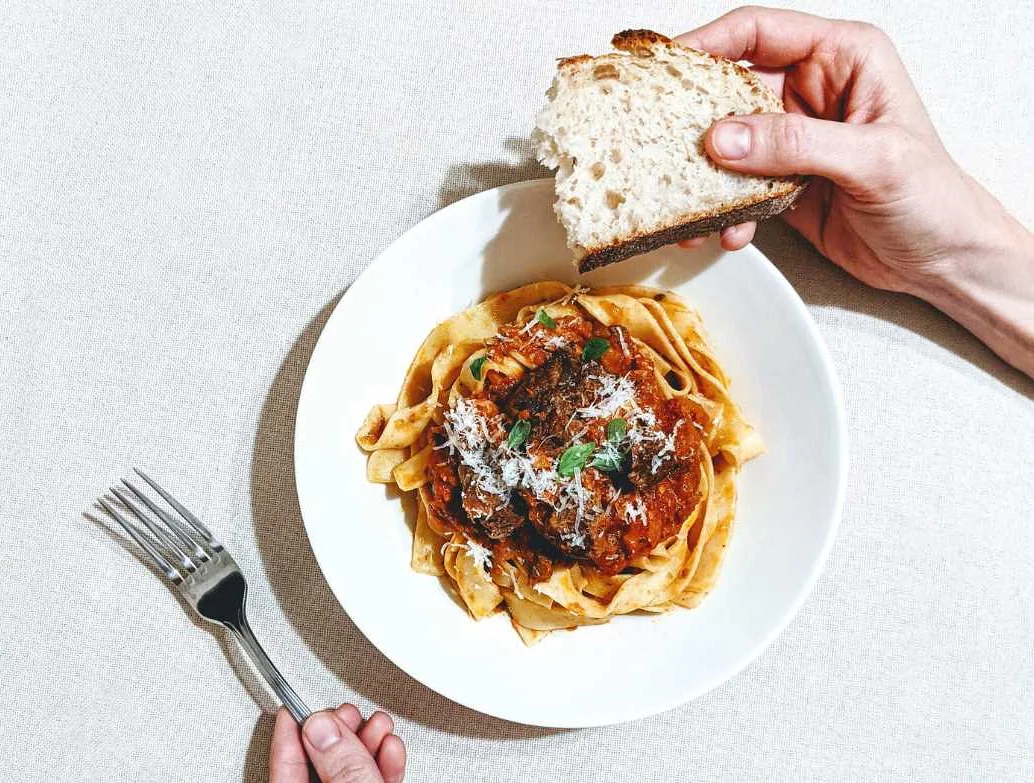Doctor Goryaynova explained which is more harmful – bread or potatoes
Содержимое
Doctor Goryaynova discusses the potential health risks of consuming bread and potatoes and provides insight into which may be more harmful. Learn more about the impact of these common foods on your health.
In today’s health-conscious world, many people are constantly seeking answers to improve their diet and reduce potential harm to their bodies. One of the most controversial topics in the field of nutrition is the comparison between bread and potatoes. To shed light on this issue, we spoke with renowned nutrition expert, Doctor Goryaynova, who has conducted extensive research on the subject.
According to Doctor Goryaynova, both bread and potatoes have their own nutritional benefits and drawbacks. Bread, a staple food in many cultures, provides carbohydrates that are essential for energy production. However, the consumption of certain types of bread, such as white bread or those made with refined grains, can lead to a rapid increase in blood sugar levels. This is particularly harmful for individuals with diabetes or those trying to maintain stable blood sugar levels.
Potatoes, on the other hand, are a rich source of vitamins, minerals, and dietary fiber. They provide a steady release of energy and can be a valuable addition to a balanced diet. However, potatoes should be consumed in moderation, as overindulgence can lead to weight gain due to their high carbohydrate content. Moreover, the way potatoes are prepared, such as frying or adding high-calorie toppings, can significantly increase their calorie count and negate their potential health benefits.
In conclusion, Doctor Goryaynova emphasizes the importance of moderation and mindful eating when it comes to both bread and potatoes. While bread’s impact on blood sugar levels should be considered, choosing whole grain options can minimize any potential harm. Similarly, potatoes should be enjoyed in reasonable portions and prepared in a healthy manner to reap their nutritional advantages. Ultimately, a balanced diet that incorporates a variety of nutrient-rich foods is key to maintaining a healthy lifestyle.
Doctor Goryaynova’s Expert opinion

According to Doctor Goryaynova, both bread and potatoes can be a part of a healthy diet when consumed in moderation. However, she emphasizes that the type of bread and the cooking method used for potatoes can greatly affect their nutritional value.
Bread: Doctor Goryaynova explains that whole grain bread is generally a better choice compared to white bread. Whole grain bread contains the entire grain, including the bran, germ, and endosperm, which provides more fiber, vitamins, and minerals. On the other hand, white bread is made from refined flour, which has been stripped of most of its nutrients. Consuming too much white bread can lead to a spike in blood sugar levels and may contribute to weight gain.
Potatoes: When it comes to potatoes, Doctor Goryaynova recommends opting for healthier cooking methods such as baking, boiling, or steaming instead of frying. Frying potatoes can significantly increase their calorie and fat content, making them less nutritious. She also advises including the skin when preparing potatoes, as it contains a higher concentration of fiber and nutrients.
Ultimately, Doctor Goryaynova’s expert opinion is that a balanced diet should include a variety of foods, including whole grain bread and properly cooked potatoes. It is important to pay attention to portion sizes and make mindful choices to maintain a healthy lifestyle.
The Health Impact of Bread

Bread is a staple food that has been consumed by humans for thousands of years. It is made from grains such as wheat, barley, or rye, which are ground into flour and mixed with water and yeast to create dough. Bread is a rich source of carbohydrates and provides energy for the body.
However, the health impact of bread can vary depending on the type and quality of bread consumed. Some types of bread, such as whole-grain bread, are considered to be healthier choices. They contain more fiber, vitamins, and minerals compared to refined white bread.
Whole-grain bread is also lower in glycemic index, which means it has a smaller impact on blood sugar levels compared to white bread. This can be beneficial for individuals with diabetes or those trying to control their blood sugar.
On the other hand, some types of bread, particularly those made from refined grains, can be less nutritious. Refined breads are often stripped of their natural fiber and nutrients during processing. They are also higher in calories and can contribute to weight gain if consumed in excess.
Individuals with gluten sensitivities or celiac disease should be cautious about consuming bread that contains gluten. Gluten is a protein found in wheat and can cause digestive issues and other health problems in some individuals.
Overall, when choosing bread, it is important to consider the type and quality. Opting for whole-grain bread and limiting consumption of refined bread can be a healthier choice. It is also important to pay attention to portion sizes and incorporate bread into a balanced diet that includes a variety of fruits, vegetables, protein sources, and other whole foods.
Potatoes and Their Effects on Health

Potatoes are a staple food in many diets around the world. They are rich in carbohydrates, dietary fiber, and various vitamins and minerals, making them a valuable source of nutrition. However, the health effects of potatoes can vary depending on how they are prepared and consumed.
When potatoes are cooked in a healthy way, such as baking, boiling, or steaming, they can provide numerous health benefits. Baked potatoes, for example, are a good source of vitamin C, potassium, and vitamin B6. These nutrients are essential for maintaining a healthy immune system, promoting proper brain function, and regulating blood pressure.
However, the health benefits of potatoes can be compromised when they are deep-fried or prepared with unhealthy ingredients, such as butter, cheese, or sour cream. These preparation methods can increase the calorie and fat content of potatoes, which can contribute to weight gain and the development of chronic diseases, such as heart disease and type 2 diabetes.
Despite their reputation as a high-carbohydrate food, potatoes can still be included in a healthy diet. It is important to choose healthier cooking methods and limit the use of unhealthy toppings and fats. Additionally, portion control is key to ensuring that potatoes do not contribute to excessive calorie intake.
In summary, potatoes can be a nutritious addition to a balanced diet when prepared in a healthy way. They provide important nutrients and can support overall health. However, it is important to be mindful of portion sizes and avoid unhealthy preparation methods to maximize the health benefits of potatoes.
Nutritional Comparison: Bread vs Potatoes
When it comes to choosing between bread and potatoes, many people wonder which is the healthier option. Both bread and potatoes are staple foods in many cultures and provide important nutrients to the diet. However, they also have some differences in terms of their nutritional content.
Bread is typically made from wheat flour, which contains carbohydrates, protein, and a small amount of fat. It is also a good source of vitamins and minerals, including B vitamins, iron, and selenium. However, the nutritional value of bread can vary depending on the type and preparation method. Whole grain breads, for example, are higher in fiber and nutrients compared to white bread.
Potatoes, on the other hand, are a starchy vegetable that are rich in carbohydrates. They are also a good source of vitamin C, potassium, and dietary fiber. However, potatoes are often associated with being high in calories and can lead to weight gain if consumed in large quantities or prepared in unhealthy ways, such as deep-frying.
In terms of calorie content, bread and potatoes are relatively similar. Both provide around 100-150 calories per serving, depending on the portion size and preparation method. However, bread tends to be more filling due to its higher fiber content, which can help with weight management and controlling hunger.
When considering the nutritional value, it is important to look at the overall diet and variety of foods consumed. Both bread and potatoes can be part of a healthy diet when consumed in moderation and prepared in a nutritious way. Whole grain breads and baked or boiled potatoes are generally considered healthier options compared to refined breads and fried potatoes.
In conclusion, both bread and potatoes have their own nutritional benefits and can be included in a balanced diet. The key is to choose whole grain breads and prepare potatoes in a healthy way to maximize their nutritional value and minimize any potential negative effects.
Ways to Reduce Health Risks
- Choose whole grains: Opt for bread and pasta made from whole grains instead of refined white flour.
- Limit processed foods: Reduce your consumption of processed foods, which are often high in sodium, sugar, and unhealthy fats.
- Increase fruit and vegetable intake: Incorporate a variety of fruits and vegetables into your daily diet to boost your intake of vitamins, minerals, and antioxidants.
- Control portion sizes: Be mindful of the amount of food you eat, especially high-calorie foods, to avoid overeating and weight gain.
- Reduce salt intake: Cut back on added salt in your meals by using less salt during cooking and opting for low-sodium options.
- Drink water: Stay hydrated by drinking plenty of water throughout the day instead of sugary drinks.
- Exercise regularly: Engage in regular physical activity to maintain a healthy weight, improve cardiovascular health, and reduce the risk of chronic diseases.
- Avoid smoking and excessive alcohol consumption: Quit smoking and limit your alcohol intake to reduce the risk of various health problems, including cancer and liver disease.
- Get enough sleep: Aim for 7-9 hours of quality sleep each night to support overall health and well-being.
- Manage stress: Find healthy ways to cope with stress, such as practicing relaxation techniques, engaging in hobbies, or seeking support from loved ones.
By implementing these lifestyle changes, you can reduce your health risks and promote a healthier, more balanced life.